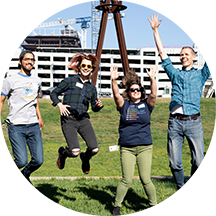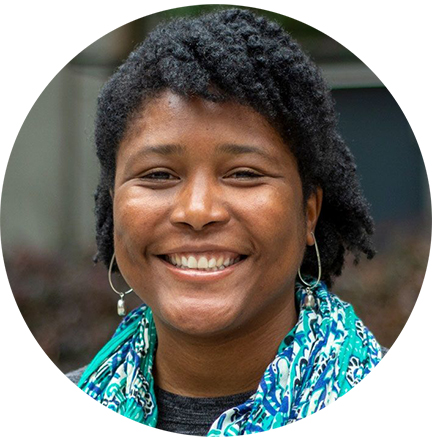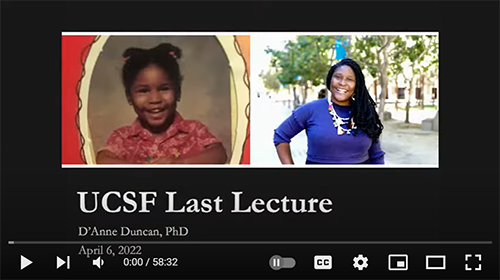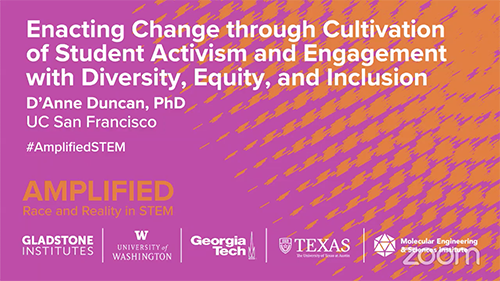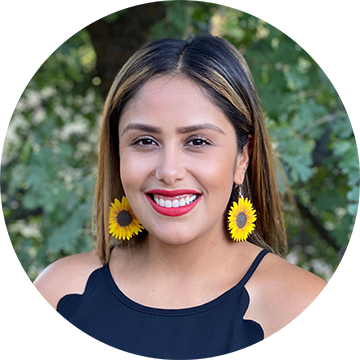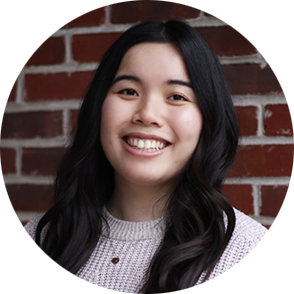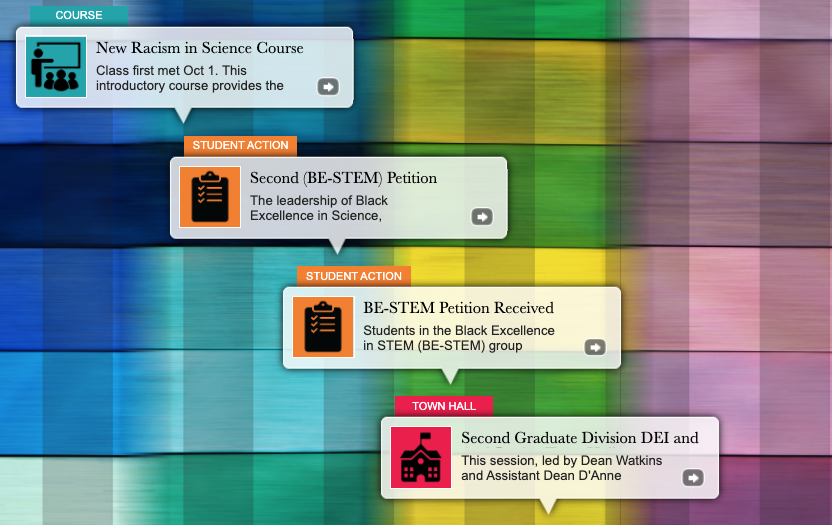Diversity
Summer 2024 Diversity Updates
► We would like to recognize and celebrate the UCSF Graduate Division Class of 2024! Congratulations on this incredible success and best wishes for the future!
► We are excited to announce the start of the National Institute for General Medical Sciences (NIGMS) Initiative for Maximizing Student Development (IMSD) on July 1, 2024 as well as the start of the start of the Summer Research Training Program (SRTP), a ten-week program for students from historically marginalized backgrounds that runs from May 26 - August 2, 2024. Support our undergraduate summer researchers by joining us for the SRTP Symposium on July 29 - July 31, 2024!
► Our team has compiled a list of Post-Labor Organizing Resources for awareness, action and wellness. Feel free to take a look and share widely with anyone who may be of interest.
► Steps Towards Dismantling Systemic Racism and Anti-Blackness in UCSF Basic Science PhD Programs Task Force Recommendations Report is now available. Chaired by Dr. D'Anne Duncan, the work of this task force was responsible for (1) describing the recommendations for action in two critical areas: graduate program policy and education and training; (2) detailing progress to date in the Graduate Division, and (3) describing additional infrastructure needs that are essential to the growth and sustainability of JEDI efforts for graduate learners.
Last updated on June 17, 2024.
► The Graduate Division Dean’s Office received two JEDI-related petitions from UCSF graduate students in 2020. See a timeline linking points in each petition to outcomes and initiatives. Further responses and milestones will be added over time as events and plans come to fruition.
► Check out The Justice, Equity, Diversity, and Inclusion (JEDI) Team Monthly Picks, an invitation for you to read (or watch, or listen) along and enter into dialogue with our team members.
The Graduate Division is committed to cultivating an environment of justice, equity, equity, and inclusion (JEDI) for graduate students and postdoctoral scholars at UCSF. The following events and programs are aimed at administering JEDI efforts in four key areas: community building, mentorship and advising, career and professional development, and campus climate.
Scroll down or click on your area of interest in the grid to see more about...

Programs
NIGMS/IMSD Fellows and Affiliates Program
The National Institute for General Medical Sciences Initiative for Maximizing Student Development (NIGMS/IMSD) Fellows and Affiliates Program at UCSF is designed to support historically underrepresented and marginalized PhD students in basic science graduates programs in their first two years of their studies. In addition to financial support for 18-21 students per year, IMSD fellows are offered a variety of professional development and social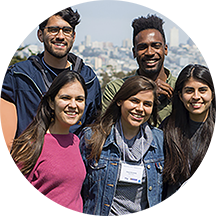 activities throughout the year. Funded by NIGMS and the Graduate Division.
activities throughout the year. Funded by NIGMS and the Graduate Division.
Summer Research Training Program
UCSF’s major outreach program to recruit historically marginalized students to basic science PhD programs. Undergraduate students selected for the Summer Research Training Program (SRTP) spend up to 10 weeks working with UCSF faculty members on research projects. Participants in the program take part in seminars, lectures, and social events, creating a cohesive and supportive community. At the end of the program, students give presentations of their research and get valuable feedback from students, postdocs, and faculty at UCSF. The 2023 program will be held in person from Sunday, May 28 to Friday, August 4, 2023.
Annual Events
Annual Retreat in Community Building
PhD Students Third-Year Reorientation
Reunite: Diversity Soiree
Creating Community: Building Resilience among Graduate Students and Postdocs
Series and Recurring Community Building Events
International Pronouns Day
International pronouns day seeks to make asking, sharing, and respecting personal pronouns commonplace. Referring to people by the pronouns they determine for themselves is basic to human dignity. Co-sponsored by the UCSF LGBT Resource Center, the Graduate Division, and other campus partners.
LGBT Community Social at SPARK
Community building social event for LGBT graduate students and postdocs, and allies at SPARK Social SF at Mission Bay.
First Generation to College: Are you the first person in your family to graduate from college? The events below help build community and offer support and visibility for first generation (First Gen) to college students. All events are co-sponsored by the Graduate Division Dean's Office and UCSF First Generation Support Services.
First Gen Story Circle at Mission Bay
 What was your transition to graduate school and UCSF like? The First Gen Story Circle is an informal discussion group for UCSF first generation to college students. Make connections, share your experiences and learn to survive and thrive.
What was your transition to graduate school and UCSF like? The First Gen Story Circle is an informal discussion group for UCSF first generation to college students. Make connections, share your experiences and learn to survive and thrive.
First Gen Paint night
Join other first generation to college graduate students for a night of community, wellness and art.
First Gen Welcome Dinner
Community building evening, featuring a keynote address by a first generation to college graduate student, faculty, staff or alumni, for graduate students who are first generation to college.
Training, Education, and Professional Development
Racism in Science (GRAD 202)
Justice, Equity, Diversity, and Inclusion Academic Leadership (GRAD 210)
Research on Racism in Science Mini-Courses (GRAD 219)
Responsible Conduct of Research (GRAD 214)
Trans Day of Visibility
Out in the Workplace
Out in Science
Shame Resilience for Graduate Students and Postdocs
On-Campus Recruitment
Diversity and Allyship Breakfasts 
The Graduate Division Dean's Office and the UCSF SACNAS Chapter co-host these yearly breakfasts during PhD recruitment weekends. Graduate students and the diversity dean serve as panelists to discuss the climate at UCSF, and campus DEI resources, such as the IMSD program, are highlighted. Over the past few years, these breakfasts have been re-imagined by Tetrad alum Dr. Joselyn Del Cid, Biomedical Sciences alum Dr. Raul Torres, Biomedical Sciences alum Dr. Melissa Spear, Biomedical Sciences PhD Candidate Ramiro Patiño, Tetrad alum Dr. Robert Efraín Díaz, and Assistant Dean for Diversity and Learner Success, Dr. D'Anne Duncan.
Diversity Network Initiative
Launched in 2018, the Diversity Network Initiative aims to connect current and prospective PhD students from similar backgrounds to build a professional network and community, share experiences, and provide insight into diversity and inclusion at UCSF. Currently, seven basic science graduate programs participate in the Diversity Network Initiative, including: Tetrad, Chemistry and Chemical Biology, the Medical Scientist Training Program, Neuroscience, Biomedical Informatics, Biophysics, and Pharmaceutical Sciences and Pharmacogenomics. Contact Dr. D'Anne Duncan if you'd like your graduate program to participate. This program was developed by Tetrad alum Dr. Roberto Efraín Díaz and Dr. D'Anne Duncan.
Learn about additional outreach activities in the Graduate Division.
Research
The Graduate Division is committed to providing programming and support for historically underrepresented and historically marginalized students in science. Research indicates numerous reasons why underrepresented and historically marginalized students continue to be excluded from scientific careers (Gibbs and Marsteller, 2017). Education research, funded by the NIGMS Initiative for Maximizing Student Development grant, is being conducted by the Graduate Division to better understand factors of identity and belonging in order to improve the campus environment for historically marginalized students. This research will directly inform how different interventions are developed to improve the PhD experience for historically marginalized students, and this work may extend to postdoctoral researchers.
(Re)Defining Success: UCSF Graduate Student Experiences, Identity, and Community Survey (Launched June 2021)
References
Committees
Faculty-Student Diversity Committee
This group of graduate students and faculty work together to address issues of diversity, equity, and inclusion, focusing on recruitment and retention of underrepresented populations in science. The Faculty-Student Diversity Committee meets once per quarter.
► View the task force report: Steps Towards Dismantling Systemic Racism and Anti-Blackness in UCSF Basic Science PhD Programs
Faculty-Dean's Office Task Force
This group of faculty and Graduate Division Dean's Office staff will specifically focus on understanding DEI goals and strategies and identifying gaps at the institutional levels in the Graduate Division. View the meeting notes of the faculty-dean's office task force. *Note: As of October 21, 2020, this Task Force has been dissolved. Recommendations were identified and they will be included in the work being completed by the Student-Faculty Task Force.
Student-Faculty Task Force
This group of graduate students and faculty will work across programs to examine DEI strategies to be adopted in common by all programs. View the meeting notes of the student-faculty task force.
Student-Led Initiatives
